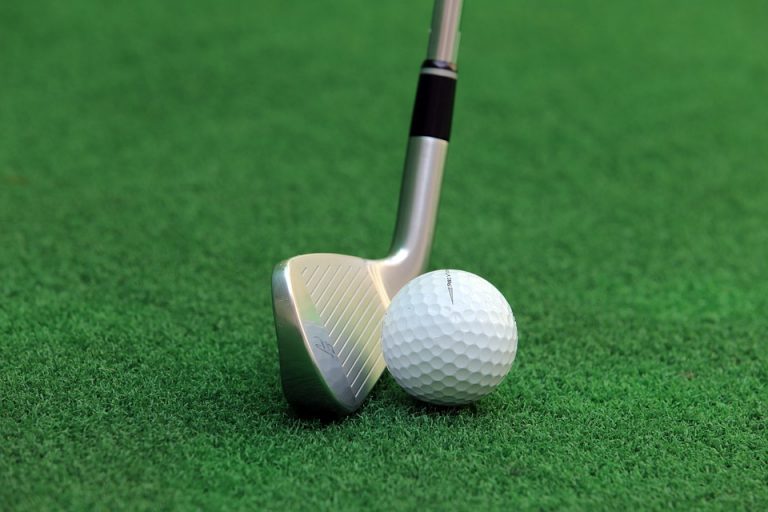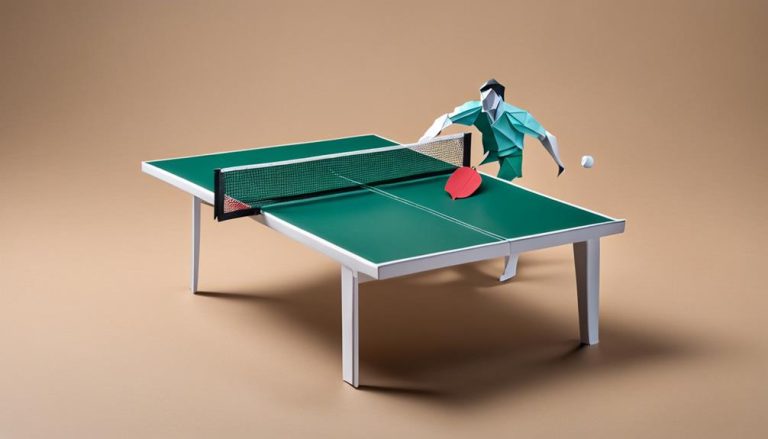General Rules of Teqball
You might think that learning the general rules of Teqball could be overwhelming, but fear not, as we will break it down for you. As you start familiarizing yourself with the equipment requirements and scoring system, you'll soon realize there's a lot more to this dynamic sport than meets the eye. Understanding the serving rules and ball contact regulations is just the tip of the iceberg when it comes to mastering the game. Stay tuned to discover how doubles gameplay guidelines, substitution policies, and the code of conduct all play crucial roles in the world of Teqball.
Equipment Requirements
To enjoy playing Teqball, you'll need specific equipment that meets the game's standards. Teqball equipment includes a Teqball table, which should be properly maintained to ensure a fair and enjoyable game. It is crucial to regularly check the table's surface for any damages, ensuring it is clean and smooth to allow the ball to bounce correctly.
When it comes to player attire, choosing the right footwear is essential. Opt for shoes that provide good traction to help you move swiftly and make precise shots. Avoid footwear with metal studs that could potentially damage the table's surface. Additionally, wearing comfortable athletic clothing that allows for freedom of movement is advisable, as Teqball involves a lot of quick footwork and agility.
Scoring System
When playing Teqball, understanding the scoring system is crucial for determining the winner of each match. The scoring in Teqball is similar to other racket sports like table tennis, with matches typically being played to a set number of points, commonly 12 or 20. A point is scored when the ball hits the opponent's side twice in a row or if a player fails to return the ball within the designated rules. To win a game, a player must reach a two-point advantage over their opponent.
To excel at Teqball, it's essential to master scoring techniques and gameplay strategy. Developing a strong understanding of when to play defensively or offensively can greatly impact your success on the Teqball table. Players must also consider their opponent's strengths and weaknesses to adapt their strategy during the game. A winning mindset, quick reflexes, and sharp strategic thinking are key components to achieving victory in Teqball matches. By honing your scoring tactics and gameplay strategy, you can elevate your performance and outsmart your opponents on the Teqball court.
Serving Rules
When it comes to serving in Teqball, two key points are crucial to remember: serve placement and service rotation. Understanding where to place your serve on the table can give you a strategic advantage, while adhering to the service rotation rule ensures fairness in the game. Mastering these aspects of serving can greatly impact your performance on the Teqball court.
Serve Placement
For a successful serve in teqball, aim to place the ball within the designated service area on the opposite side of the teqball table. Proper footwork techniques are essential to generate power and accuracy in your serve. Ensure you have a stable stance and use your body's momentum to propel the ball towards the desired spot. Effective communication strategies between doubles partners can enhance the serve placement by coordinating positioning and tactics. By strategizing together, you can exploit your opponents' weaknesses and maximize your chances of winning the point. Remember, mastering serve placement not only requires skill but also teamwork and coordination. Practice diligently to improve your ability to consistently deliver precise and impactful serves.
Service Rotation
Understanding the service rotation rules in teqball is crucial for maintaining a fair and competitive gameplay environment. Here are three key points to consider:
- Strategy Tactics: Service rotation can be used strategically to keep opponents off balance. By understanding when to switch service and how to position yourself optimally after a serve, players can gain a tactical advantage.
- Training Techniques: Practicing service rotation during training sessions is essential. It helps players develop a rhythm and consistency in their serves, ensuring smooth transitions between service turns.
- Player Etiquette, Sportsmanship Standards: Following the correct service rotation rules demonstrates good sportsmanship. It is important to abide by these rules to promote fairness and respect in teqball matches.
Ball Contact Regulations
To properly execute a teqball match, players must adhere to specific guidelines regarding how they interact with the ball during gameplay. Ensuring fair play and maintaining the integrity of the game, there are important regulations to follow when it comes to ball contact. Below are the key rules you need to keep in mind:
| Ball Contact Regulations | Description |
|---|---|
| Foot fault | A player commits a foot fault if they touch the ball with any part of their foot below the ankle during play. This results in the opponent gaining a point. |
| Net touch | Players are not allowed to touch the net with any part of their body while the ball is in play. Doing so will result in a point being awarded to the opposing team. |
Adhering to these regulations ensures a fair and competitive teqball match. Remember, precision and control are key when it comes to interacting with the ball, so stay focused and play by the rules to maximize your performance on the teqball table.
Doubles Gameplay Guidelines
When playing doubles in teqball, teamwork and coordination are essential for achieving success on the table. Here are some key points to keep in mind:
- Strategy Tactics: Develop unique strategies with your partner to confuse opponents. Use tactics like quick exchanges, lob shots, or angled returns to keep the game unpredictable.
- Communication Skills: Effective communication is crucial in doubles play. Use verbal cues, hand signals, or pre-decided strategies to coordinate movements and shot selections seamlessly.
- Team Dynamics and Coordination Techniques: Understand your partner's strengths and weaknesses to complement each other on the table. Work on synchronized movements, positioning, and covering each other's areas to maximize performance.
In doubles gameplay, success hinges on how well you and your partner strategize, communicate, and coordinate your actions. By mastering these elements, you can elevate your game and outmatch your opponents effectively. Remember, teamwork makes the dream work in teqball doubles.
Substitution Policies
For effective team management and gameplay dynamics, it is essential to familiarize yourself with the substitution policies in teqball. Substitution management is crucial in teqball to maintain player energy levels and strategic advantage. Player rotations play a significant role in sustaining a high level of performance throughout a match. Understanding when and how to substitute players can be a game-changer.
In teqball, substitutions can be made at any time during a match, but only when the ball is not in play. This rule ensures that substitutions do not disrupt the flow of the game. Teams must communicate effectively to coordinate substitutions efficiently. It's important to strategize player rotations based on each player's strengths, weaknesses, and fatigue levels.
Code of Conduct
When engaging in Teqball, it's crucial to adhere to the Code of Conduct. This includes understanding behavior expectations, following fair play guidelines, and showing respect for your opponents. By upholding these principles, you contribute to a positive and sportsmanlike environment on the Teqball court.
Behavior Expectations
In Teqball, players are expected to adhere to a strict Code of Conduct regarding their behavior on and off the field. When engaging in this exciting sport, remember these key behavior expectations:
- Sportsmanship Expectations: Show respect towards your opponents, officials, and spectators. Embrace fair play and uphold the values of integrity and honesty.
- Etiquette Guidelines: Follow proper etiquette by shaking hands before and after matches, refraining from unsportsmanlike behavior, and accepting both victory and defeat graciously.
- Player Conduct: Maintain respectful interactions with your fellow players, coaches, and all involved in the game. Avoid any actions that could be deemed disrespectful or harmful to the spirit of Teqball.
Fair Play Guidelines
Adhering to the Fair Play Guidelines in Teqball is essential for fostering a respectful and competitive environment among players. Displaying sportsmanship and etiquette on the Teqball court not only enhances the overall experience but also sets a positive example for others. Here are some key principles to keep in mind:
| Fair Play Guidelines | Description | Examples |
|---|---|---|
| Respect for opponents | Treat opponents with respect, regardless of the game's outcome. | Shake hands after the match. |
| Integrity | Play honestly and follow the rules of the game. | Admit when a ball touches the table. |
| Positive attitude | Maintain a positive attitude throughout the game. | Encourage your opponent after a good play. |
Respect for Opponents
To foster a respectful and competitive environment in Teqball, a fundamental aspect to uphold is the code of conduct regarding respect for opponents. Here are three key points to consider when it comes to respecting your opponents in this sport:
- Sportsmanship: Displaying good sportsmanship by showing respect, fairness, and graciousness towards your opponents, win or lose.
- Competitive Spirit: Embracing a competitive spirit that drives you to perform at your best while still respecting the skills and efforts of your opponents.
- Fair Play: Upholding the principles of fair play by following the rules, avoiding unsportsmanlike behavior, and treating your opponents with dignity and respect throughout the game.
Penalty and Fouls Clarification
Ever wondered what actions constitute penalties and fouls in Teqball? In this dynamic sport where skill and strategy intertwine, understanding the rules surrounding penalty kicks, fouls, offside calls, and handball violations is crucial for mastering the game.
In Teqball, a penalty kick is awarded when a player commits a serious foul within their own penalty area. This provides an excellent opportunity for the opposing player to score a goal without interference. Fouls in Teqball can range from dangerous play and obstructing an opponent to using excessive force during challenges. It's essential to play with respect and integrity to avoid penalties that could cost you points in a match.
Additionally, the offside rule in Teqball is similar to soccer, aiming to prevent players from gaining an unfair advantage by positioning themselves closer to the opponent's goal than the ball. Handball violations occur when a player touches the ball with their hand intentionally, giving the opposing team a free kick.
Frequently Asked Questions
Can Players Use Their Hands to Touch the Ball During a Teqball Match?
Hey, you, eager to show off your ball control and footwork skills! Remember, in teqball, hands are off-limits. It's all about fair play and perfecting your footwork. So, get ready to dazzle!
How Long Does a Teqball Match Typically Last?
In a Teqball match, the duration varies based on the agreed-upon rules, typically lasting around 15-20 minutes per set. To excel, focus on endurance, agility, and quick thinking strategies to outlast opponents.
Are There Any Specific Guidelines for the Attire Players Must Wear During a Teqball Match?
When stepping onto the teqball court, remember the dress code sets the tone. Team uniforms add flair and unity. Footwear requirements ensure player safety, blending style and function seamlessly for a match that's both fashionable and secure.
Can Players Request a Video Review of a Disputed Call During a Teqball Match?
If you're unsure about a call during a teqball match, you can't request an instant replay. Fair play relies on the referee's decisions without technology assistance. Trust the game's flow and sportsmanship.
Are There Any Restrictions on the Size or Weight of the Teqball Table That Can Be Used in Official Competitions?
Ever wondered if there are limits on the size or weight of teqball tables in official competitions? Well, in these top-level matches, strict rules govern table dimensions, weight restrictions, material considerations, and playing surface dimensions.






